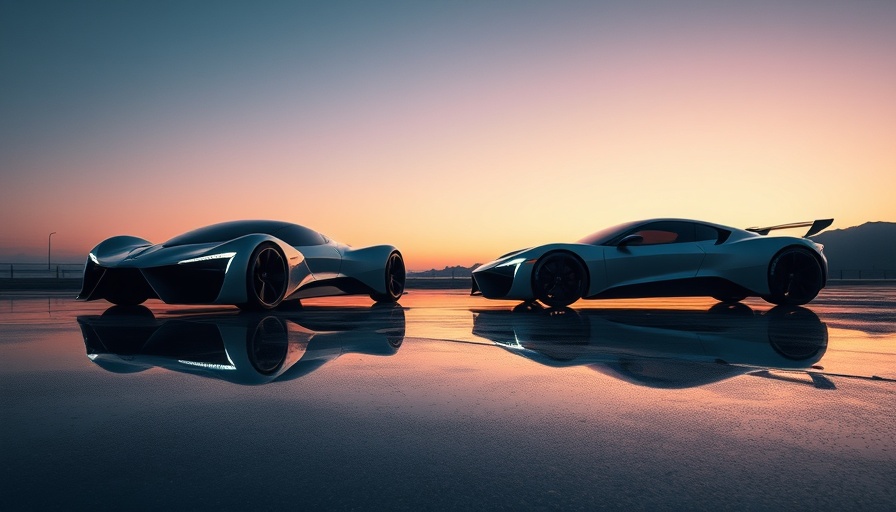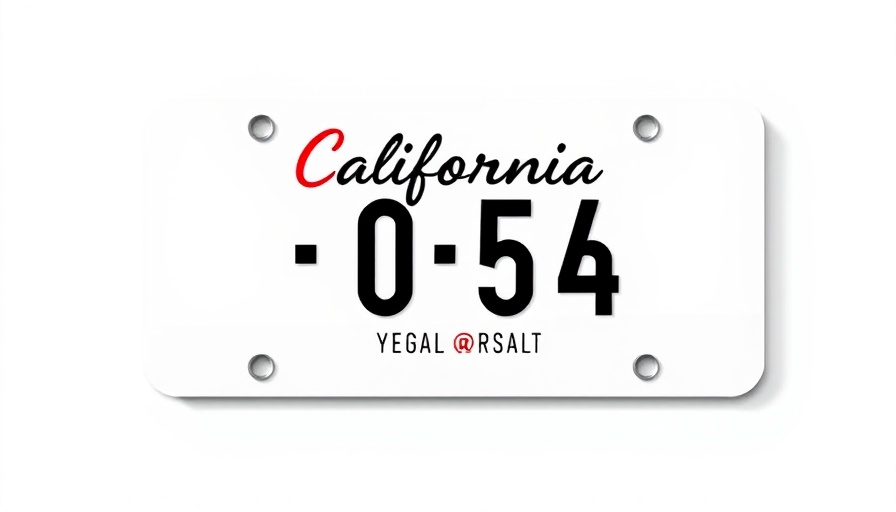
The Evolution of Honda: How New EVs Could Redefine the Future of Accords
As the automotive industry embarks on a journey towards electrification, Honda is positioning itself at the forefront with a bold approach. Honda is set to start electric vehicle production in 2025 at its Ohio EV Hub, with a unique plan that could transform how vehicles are built — and this could lead to better Accords in the future.
Honda's Brave New EV World
With growing consumer demand for electric vehicles (EVs), Honda is committed to producing a full lineup of electrified models in North America. The automaker is pushing towards zero environmental impact by 2050, alongside its ambitious goal for 100% electric vehicle sales by 2040. Honda aims to capture 40% of its sales in the EV market by 2030. This transition signals the company’s dedication to innovation amidst shifting regulatory landscapes and economic realities.
Mass Production Meets Flexibility
Honda's strategy hinges on its Ohio EV Hub, which represents a significant investment of over $1 billion aimed at modernizing production facilities. The Marysville assembly plant, famous for its long history, will soon allow for the simultaneous production of EVs, hybrids, and gasoline models on the same production lines. This flexibility could ensure production capacity remains robust, regardless of market fluctuations.
The Game Changer: A Shared Production Philosophy
The integration of EV and traditional internal combustion engine (ICE) vehicle production lines is not just a logistical adjustment; it’s a game changer. Honda aims to set a global standard for EV production while also enhancing the efficiency and quality of its gasoline models. By incorporating lessons learned from electric vehicle manufacturing, customers can expect improvements in the overall production quality of their beloved Accords. The adaptability of the production line allows Honda to respond quickly to changing market demands and consumer preferences.
Future Models on the Horizon
The upcoming vehicles from Honda’s Ohio facility include the Acura RSX EV, as well as the eagerly anticipated Honda 0 SUV and Honda 0 Saloon, both launching in 2026. The addition of the Afeela 1 model, produced in collaboration with Sony Honda Mobility, further illustrates Honda's commitment to embracing the future of electric-driving technology. With these innovations, Honda hopes to redefine consumer expectations and set new performance benchmarks for the brand.
Challenges and Opportunities Ahead
While Honda's vision is indeed ambitious, it isn't without challenges. The unpredictability of EV demand and the ongoing transformation of consumer attitudes towards mobility must be navigated carefully. The competition will be fierce, and Honda will need to continually adapt its strategies to maintain its relevance. However, the willingness to innovate and blend EV technologies with traditional automotive practices sets Honda on a promising path. If executed well, these changes could reinvigorate their most popular models, including the Accord, making them not only more eco-friendly but also technologically advanced.
Honda's shift towards electric vehicles paves the way for a new era in automotive manufacturing. The potential transformation of the Accord and other models reflects a future where sustainability and performance go hand in hand. As Honda ventures into this brave new world, enthusiasts and consumers alike will be watching closely to see how their storied brand adapts and evolves.
 Add Row
Add Row  Add
Add 




Write A Comment